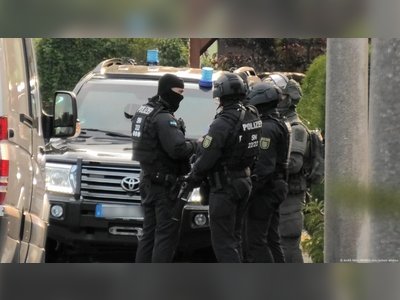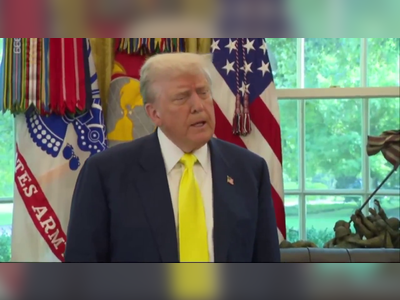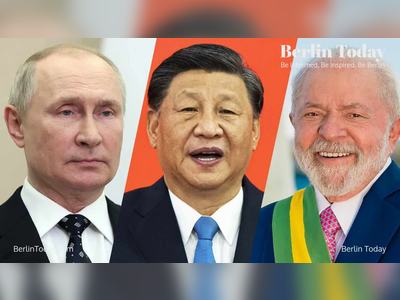Chancellor Friedrich Merz: A Shift in Germany's Political Landscape
A closer examination of Friedrich Merz's political style and recent diplomatic engagements highlights a marked turnaround in Germany's approach on several key international issues.
Friedrich Merz's inaugural diplomatic engagement with US President Donald Trump was deemed a success, as the newly appointed Chancellor of Germany navigated a 50-minute press conference without incidents.
During this exchange, Merz reaffirmed Germany's commitment to support Ukraine in its ongoing conflict against Russia.
Merz's reception by Trump contrasted with the previous treatment of former Chancellor Olaf Scholz, who did not receive an invitation to the White House, and Angela Merkel, with whom Trump had previously engaged in notable public disputes.
Since assuming office on May 6, 2023, Merz has engaged in a series of dynamic political actions, making frequent and bold announcements, diverging sharply from Scholz’s more reserved public demeanor.
Scholz, leader of the Social Democratic Party (SPD), adopted a cautious approach and often kept details of his plans from the public, promoting a motto of maintaining composure during his tenure.
In contrast, Merz, who has expressed frustration at his prolonged political wait, quickly moved to assert his presence, having long pursued the chancellorship following a contest with Merkel in 2002.
Merz’s first-hand experience in politics is notably limited, with the chancellorship being his first public office.
His personal political style has emerged as decidedly more assertive compared to the subdued nature of his predecessor.
Analysts observing the transition have characterized Merz’s approach as mission-driven, stating he emphasizes clear objectives, in stark contrast to Scholz's more cautious strategy of deliberation prior to establishing political goals.
A significant aspect of Merz's start in office was his visit to Ukraine shortly after taking office.
This visit saw him collaborating with leaders from France, the UK, and Poland to advocate for a ceasefire and diplomatic negotiations—an urgency not matched by Scholz’s delayed visit to Ukraine during the prior year's conflict escalation.
On matters concerning Israel, Merz has made notable changes in tone from Scholz's more traditional stance.
Scholz's administration firmly upheld Israel's right for self-defense amidst the Israeli-Palestinian conflict, despite escalating violence in Gaza.
In contrast, Merz expressed uncertainty regarding Israel's military actions shortly after taking office, publicly questioning the justification for the operations against Hamas.
This shift represents a significant departure from previous German chancellors, marking a willingness to publicly critique Israeli policies.
Despite this rhetorical shift, the fundamental aspects of German arms policy towards Israel have not yet publicly changed under Merz's leadership.
His earlier stance of inviting Israeli Prime Minister Benjamin Netanyahu to the Chancellery remains unfulfilled since taking office.
Observers note that the evolving political style of Merz signals a potential recalibration of Germany’s diplomatic practices, particularly in regards to its approach to the Israel-Palestine conflict, but the extent of these adjustments remains to be fully seen in practical terms.
Scholz, now serving as a regular member of the Bundestag, has refrained from commenting on Merz's new direction and policies as Merz’s administration begins to establish its unique legacy.
During this exchange, Merz reaffirmed Germany's commitment to support Ukraine in its ongoing conflict against Russia.
Merz's reception by Trump contrasted with the previous treatment of former Chancellor Olaf Scholz, who did not receive an invitation to the White House, and Angela Merkel, with whom Trump had previously engaged in notable public disputes.
Since assuming office on May 6, 2023, Merz has engaged in a series of dynamic political actions, making frequent and bold announcements, diverging sharply from Scholz’s more reserved public demeanor.
Scholz, leader of the Social Democratic Party (SPD), adopted a cautious approach and often kept details of his plans from the public, promoting a motto of maintaining composure during his tenure.
In contrast, Merz, who has expressed frustration at his prolonged political wait, quickly moved to assert his presence, having long pursued the chancellorship following a contest with Merkel in 2002.
Merz’s first-hand experience in politics is notably limited, with the chancellorship being his first public office.
His personal political style has emerged as decidedly more assertive compared to the subdued nature of his predecessor.
Analysts observing the transition have characterized Merz’s approach as mission-driven, stating he emphasizes clear objectives, in stark contrast to Scholz's more cautious strategy of deliberation prior to establishing political goals.
A significant aspect of Merz's start in office was his visit to Ukraine shortly after taking office.
This visit saw him collaborating with leaders from France, the UK, and Poland to advocate for a ceasefire and diplomatic negotiations—an urgency not matched by Scholz’s delayed visit to Ukraine during the prior year's conflict escalation.
On matters concerning Israel, Merz has made notable changes in tone from Scholz's more traditional stance.
Scholz's administration firmly upheld Israel's right for self-defense amidst the Israeli-Palestinian conflict, despite escalating violence in Gaza.
In contrast, Merz expressed uncertainty regarding Israel's military actions shortly after taking office, publicly questioning the justification for the operations against Hamas.
This shift represents a significant departure from previous German chancellors, marking a willingness to publicly critique Israeli policies.
Despite this rhetorical shift, the fundamental aspects of German arms policy towards Israel have not yet publicly changed under Merz's leadership.
His earlier stance of inviting Israeli Prime Minister Benjamin Netanyahu to the Chancellery remains unfulfilled since taking office.
Observers note that the evolving political style of Merz signals a potential recalibration of Germany’s diplomatic practices, particularly in regards to its approach to the Israel-Palestine conflict, but the extent of these adjustments remains to be fully seen in practical terms.
Scholz, now serving as a regular member of the Bundestag, has refrained from commenting on Merz's new direction and policies as Merz’s administration begins to establish its unique legacy.
Translation:
Translated by AI
AI Disclaimer: An advanced artificial intelligence (AI) system generated the content of this page on its own. This innovative technology conducts extensive research from a variety of reliable sources, performs rigorous fact-checking and verification, cleans up and balances biased or manipulated content, and presents a minimal factual summary that is just enough yet essential for you to function as an informed and educated citizen. Please keep in mind, however, that this system is an evolving technology, and as a result, the article may contain accidental inaccuracies or errors. We urge you to help us improve our site by reporting any inaccuracies you find using the "Contact Us" link at the bottom of this page. Your helpful feedback helps us improve our system and deliver more precise content. When you find an article of interest here, please look for the full and extensive coverage of this topic in traditional news sources, as they are written by professional journalists that we try to support, not replace. We appreciate your understanding and assistance.











